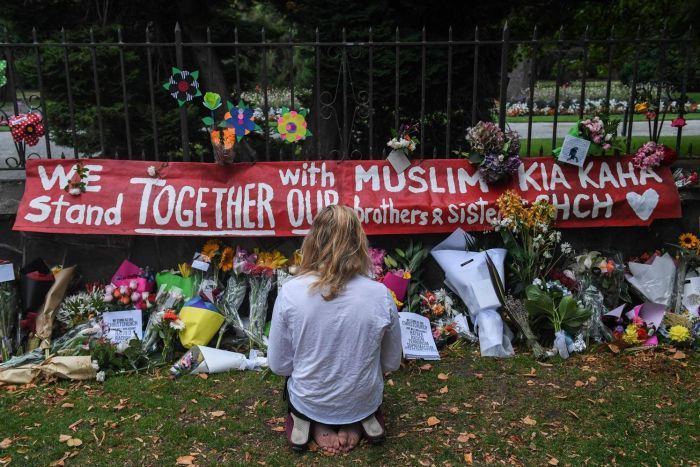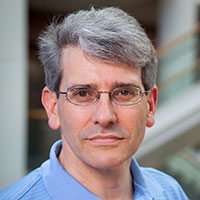Related Posts
Death in the midst of prayer

Flowers were laid at the Botanical Gardens in Christchurch, New Zealand, in the aftermath of the shootings at the Al Noor Mosque and the Linwood Islamic Centre. The words “kia kaha” on the right side of the sign mean “stay strong” in Maori. Photo by Brendan Esposito for ABC News.
Over the past several years, we’ve seen mass shootings in churches, synagogues and mosques. But the horrific scale of violence wrought by a single gunman in two different Christchurch mosques is almost unimaginable in scale and fury.
How could one human being so wantonly, intentionally and apparently unremorsefully murder so many people and injure so many others? The violence leaves families eviscerated and communities grieving. In a small and peaceful country such as New Zealand, the loss is especially devastating.
Some commentators blame our president for condoning white supremacy. Others point to the impact of the internet in providing a platform for unalloyed hatred, violence and easy access to guns. Likely, these factors and more were at play. New Zealand, though, has a prime minister who is committed to do something about access to guns.
One of our faculty members, Steve Marshall, professor of epidemiology, is from New Zealand. He wrote early Monday:
I lived in Christchurch for 5 years in the 1980s. It was a wonderful, laid-back town, with a great arts scene, beautiful architecture and a lovely central park.
It was heartbreaking when, in 2011, a massive earthquake destroyed much of the central area of the town, killing 185 people. It’s hard to imagine that something even more horrific could happen, in such a lovely place, less than 10 years later.
It is very true that the work we do – and the way in which we do it – is the vaccine and the antidote for the insanity of hatred, violence and intolerance. It is very comforting to me, at a time like this, to be part of the wonderful Gillings School community.
Our school’s leaders, represented by our Dean’s Council, issued a statement.
We, the members of the Dean’s Council at the UNC Gillings School of Global Public Health, are deeply saddened by Friday’s shootings at two mosques in central Christchurch, New Zealand. The attack, which left at least 50 people dead and 50 injured, was a terrorist act that cuts against the core values of public health.
From what we know so far, the shooter published a manifesto before the attack that was filled with anti-immigrant, anti-Muslim sentiments. He wrote that he chose firearms as his weapons for the effect it would have on social discourse and politics both within the United States and around the world.
We want to respond to this devastating event in the best way we know how – by continuing to decry all forms of discrimination, promote civil discourse, and use research, practice, and policy to reduce health inequities and related violent acts in North Carolina and around the globe.
Our School is a place where we welcome, value and learn from individual differences and perspectives, both because diverse beliefs and ideas make us better and because every life is equally valuable and precious.
Our hearts go out to the families and friends of the people who lost their lives to this act of hatred. No person of any faith should ever have to fear attending a sacred place of worship. We grieve with the Muslim community, and we will continue to denounce bigotry and work with passionate commitment to make the world a healthier, safer place for all.
Gun violence is a public health problem and crisis. As the 2020 elections near, we should scrutinize all candidates for their positions on guns and be prepared to use the ballot to effect change. I will. Enough is enough!
Barbara

